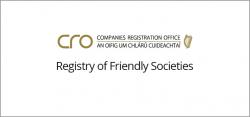
Nathan Lemon (unsplash)
New Charity Governance Code
The Charity Regulator launched a new governance code for charities last week. It sets out a basic standard made up of 6 governance principles i.e. Advancing Charitable Purpose, Behaving with Integrity, Leading People, Exercising Control, Working Effectively and being Accountable and Transparent. There are 32 core standards outlined in putting the six principles in place with additional standards for more complex charities
On reviewing the standard it might appear detailed, however, it won’t be daunting for most well-run charities who will already have processes in place to deal most of the core standards e.g. managing conflicts of interest, financial controls and hold regular board meetings etc.
Charities will be expected to be compliant with the code from 2020 and begin reporting on their compliance in 2021 which gives organisations ample time to review and implement the code. The Charities Regulator has wisely identified that the key to implementation is to ensure board engagement. Directors must review and approve the charities implementation, therefore by supporting its implementation, challenges can be addressed more readily.





